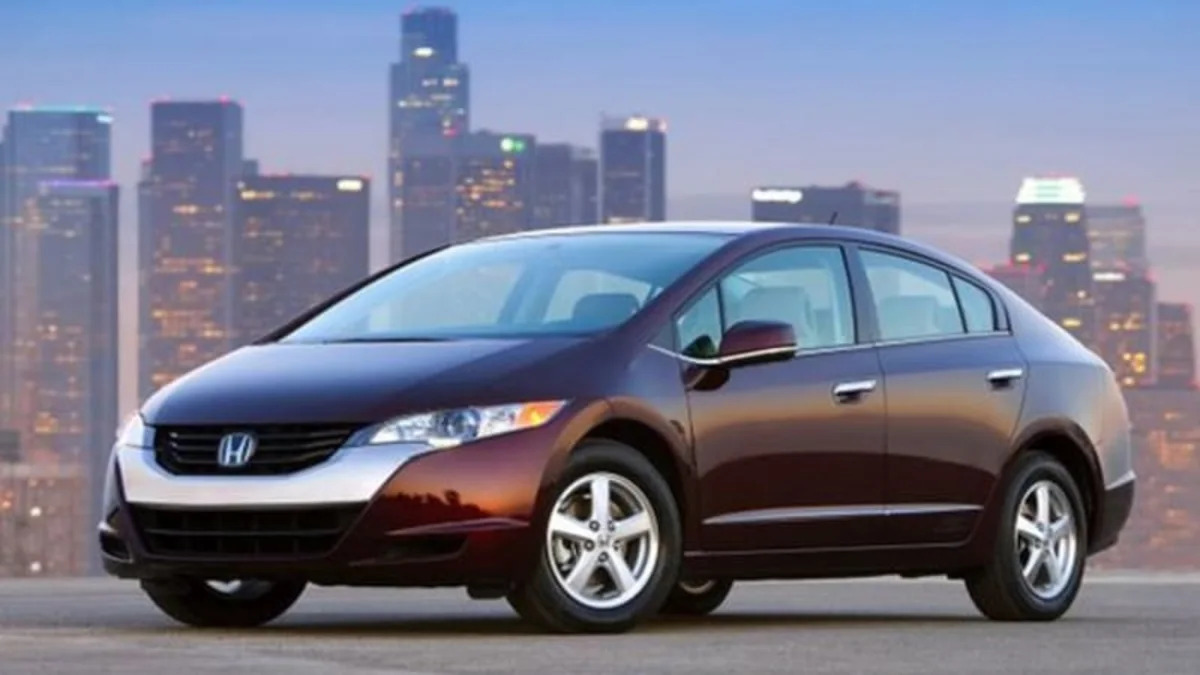"A lot of auto makers believe the fuel-cell vehicle is just a better performing vehicle and just makes more sense." So says Kevin See, a senior analyst of electric vehicles at Lux Research in Boston, told CNN. It's not a surprising thing to say, but it again shows commitments by automakers to develop hydrogen fuel-cell vehicles have been increasing lately. Toyota, Hyundai, Daimler and Honda all see them as vital alternative energy options, perhaps even more important than battery-electric vehicles.
Hyundai has been planning to offer a fuel-cell version of its ix35 sport utility vehicle (known as the Tucson in the US) for lease by the end of this year. As for production, Hyundai will be building 1,000 fuel-cell cars by 2015, and beyond that, up to 10,000 fuel-cell cars a year. The company is committed to both fuel cell and battery-powered vehicles – fuel cells for heavier and mid-size cars and battery-powered for smaller ones, Byung Ki Ahn, general manager of fuel-cell research at Hyundai, told CNN.
Toyota and Honda have both said they will release a fuel-cell car in 2015. Honda already has the FCX Clarity (pictured) available for lease in California, and Mercedes-Benz leases its F-Cell car in that same market.
Just like with plug-in vehicles, infrastructure is key to H2 vehicles. That's why Honda, Toyota, Nissan and Hyundai have joined forces to expand the hydrogen fueling network throughout the Nordic region. They've agreed to a Memorandum of Understanding with government representatives from Denmark, Norway, Sweden and Iceland and are committed to supporting fuel-cell vehicle refueling infrastructure development from 2014 to 2017.
Why are these automakers committed to rolling out fuel-cell vehicles? Stop us if you've heard this before, but the answer from the OEMs revolves around the fact that they can travel much farther than electric vehicles after a refueling, said refueling can be done in about five minutes and fuel cells are more adaptable to large vehicles like trucks and SUVs than battery-powered vehicles. They're considered by some to be the cleanest energy source for emissions, only releasing water vapor from the tailpipe, and come from the most abundant element in the universe.
Still, the barriers to mass adoption of fuel-cell vehicles are steep. The price point is pretty high. For the two hydrogen-powered cars currently available in the US, the payments are much more than most consumers can stomach. The FCX Clarity is available for $600 a month on a three-year lease, while the F-Cell three-year lease goes for $849 a month, plus tax.
The other problem is fueling stations. The Department of Energy's Alternative Fuels Data Center says there are only nine hydrogen stations in the US (excluding private stations), and these are all in California.
Hyundai has been planning to offer a fuel-cell version of its ix35 sport utility vehicle (known as the Tucson in the US) for lease by the end of this year. As for production, Hyundai will be building 1,000 fuel-cell cars by 2015, and beyond that, up to 10,000 fuel-cell cars a year. The company is committed to both fuel cell and battery-powered vehicles – fuel cells for heavier and mid-size cars and battery-powered for smaller ones, Byung Ki Ahn, general manager of fuel-cell research at Hyundai, told CNN.
Toyota and Honda have both said they will release a fuel-cell car in 2015. Honda already has the FCX Clarity (pictured) available for lease in California, and Mercedes-Benz leases its F-Cell car in that same market.
Just like with plug-in vehicles, infrastructure is key to H2 vehicles. That's why Honda, Toyota, Nissan and Hyundai have joined forces to expand the hydrogen fueling network throughout the Nordic region. They've agreed to a Memorandum of Understanding with government representatives from Denmark, Norway, Sweden and Iceland and are committed to supporting fuel-cell vehicle refueling infrastructure development from 2014 to 2017.
Why are these automakers committed to rolling out fuel-cell vehicles? Stop us if you've heard this before, but the answer from the OEMs revolves around the fact that they can travel much farther than electric vehicles after a refueling, said refueling can be done in about five minutes and fuel cells are more adaptable to large vehicles like trucks and SUVs than battery-powered vehicles. They're considered by some to be the cleanest energy source for emissions, only releasing water vapor from the tailpipe, and come from the most abundant element in the universe.
Still, the barriers to mass adoption of fuel-cell vehicles are steep. The price point is pretty high. For the two hydrogen-powered cars currently available in the US, the payments are much more than most consumers can stomach. The FCX Clarity is available for $600 a month on a three-year lease, while the F-Cell three-year lease goes for $849 a month, plus tax.
The other problem is fueling stations. The Department of Energy's Alternative Fuels Data Center says there are only nine hydrogen stations in the US (excluding private stations), and these are all in California.


Sign in to post
Please sign in to leave a comment.
Continue